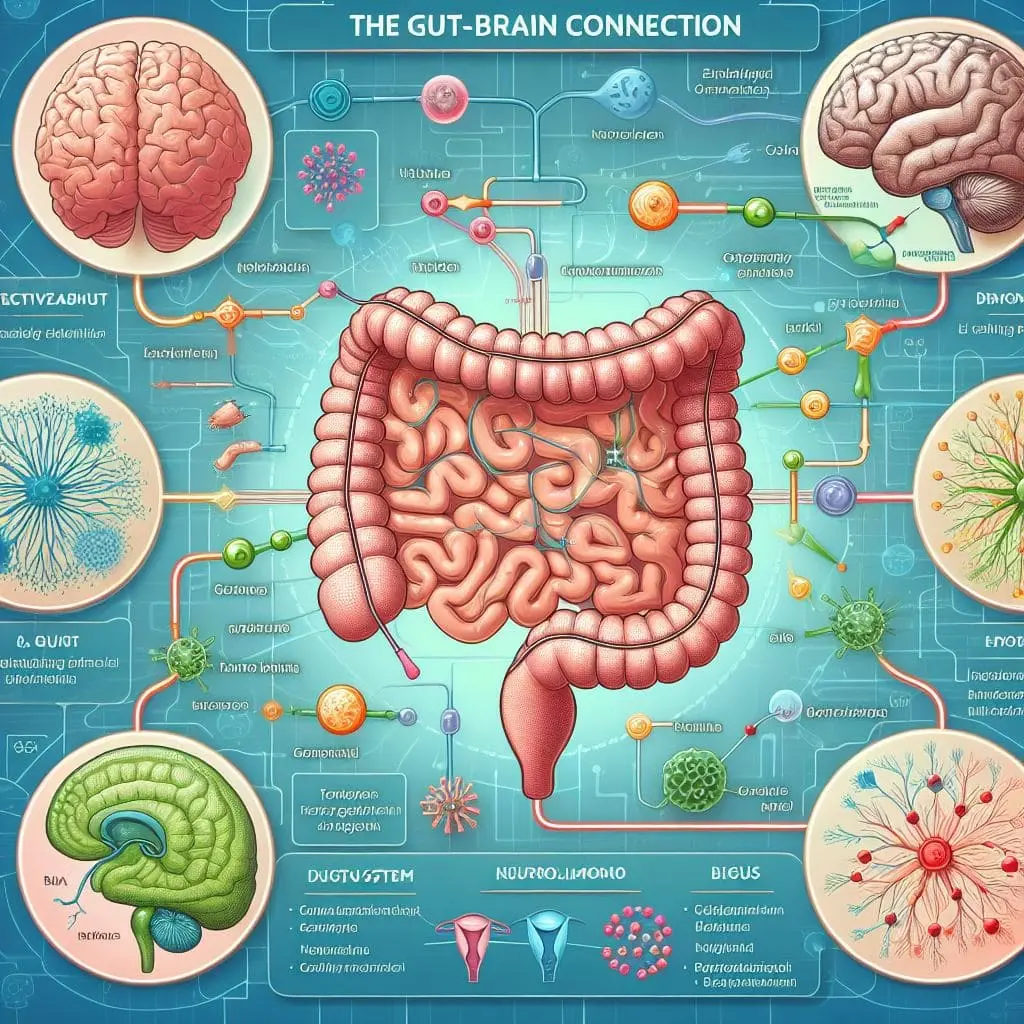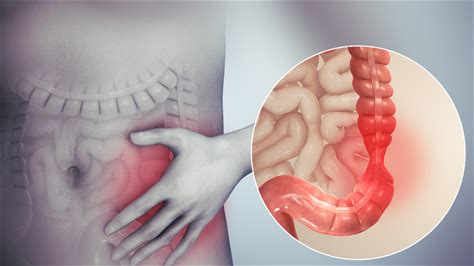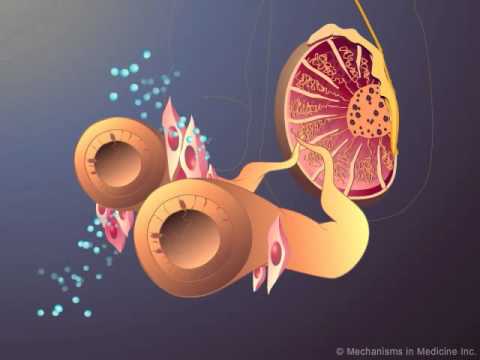Dicyclomine for Anxiety Relief: Unveiling the Gut-Brain Connection

“Dicyclomine Used for Anxiety” is not a phrase you’d typically encounter, yet it encapsulates a burgeoning interest in the off-label application of this antispasmodic medication. Anxiety disorders, pervasive in their disruption of peace and productivity, compel sufferers and clinicians alike to explore beyond traditional pharmacotherapy.
Dicyclomine, known for its efficacy in managing irritable bowel syndrome (IBS), now enters the conversation as a potential ally against anxiety. This article peels back the layers of the gut-brain connection, a frontier in understanding how gastrointestinal health might influence our mental state.
Could the relief dicyclomine provides to the gut also extend to the mind? Join us as we unravel the science behind this intriguing possibility, offering a glimmer of hope to those entangled in anxiety’s far-reaching effects.
Dicyclomine is a medication that belongs to a class of drugs known as anticholinergics or antispasmodics. It’s primarily used to treat a condition called irritable bowel syndrome (IBS), which is a common disorder affecting the large intestine, causing symptoms like abdominal pain, cramping, bloating, gas, diarrhea, and constipation.
Dicyclomine: Key to IBS Relief and Anticholinergic Insights
Dicyclomine works by relaxing the muscles in the stomach and intestines. It is an anticholinergic agent, which means it blocks the action of acetylcholine, a neurotransmitter that can cause muscles to spasm. By inhibiting this action, dicyclomine reduces the muscle contractions that can lead to the pain and discomfort associated with IBS.
The drug is available in various forms, including oral tablets, capsules, and injectable forms. The dosage and frequency of dicyclomine administration depend on the severity of the symptoms and the response of the individual to the medication.
Primary Use for IBS:
IBS is a chronic condition that needs long-term management. Dicyclomine is often prescribed as part of a treatment plan that includes diet changes, stress management, and other medications. It’s not a cure for IBS but can significantly alleviate the symptoms, improving the quality of life for many patients.
Explanation of Anticholinergic Drugs:
Anticholinergic drugs are a broad category of medications that block the action of acetylcholine. Acetylcholine is involved in transmitting messages in the nervous system that can affect a wide range of body functions, including muscle contractions, heart rate, breathing, salivation, and digestion.
By blocking acetylcholine, anticholinergic drugs can help reduce spasms in the digestive tract, decrease saliva production, slow the heart rate, and relax other muscles throughout the body. This makes them useful in treating a variety of conditions, from IBS to overactive bladder, Parkinson’s disease, and even some symptoms of COPD (chronic obstructive pulmonary disease).
However, because anticholinergic drugs affect so many systems in the body, they can also cause a range of side effects. These can include dry mouth, blurred vision, constipation, urinary retention, confusion, and drowsiness. It’s important for individuals taking these medications to be aware of these potential side effects and to discuss any concerns with their healthcare provider.
In summary, dicyclomine is an anticholinergic medication used to alleviate symptoms of IBS. Its ability to relax muscle spasms in the gut makes it a valuable part of managing this chronic condition. While effective, it’s crucial for patients to be informed about the potential side effects and to use the medication under the guidance of a healthcare professional.
The Gut-Brain Axis: Understanding the Connection

The gut-brain axis represents a remarkable example of how distant systems within our body communicate and influence each other. This bidirectional relationship not only dictates gastrointestinal health but also plays a significant role in mental well-being. The intricate dialogue between the gut and the brain occurs through a network of nerves, hormones, and immune system interactions, making it a fascinating subject for both medical professionals and those interested in optimizing their health.
The Bidirectional Relationship
At the core of the gut-brain axis is the understanding that the gastrointestinal tract and the brain are in constant communication. This relationship is facilitated by the enteric nervous system, often referred to as the “second brain,” which contains hundreds of millions of neurons that communicate with the central nervous system. The vagus nerve, one of the longest cranial nerves, is a critical pathway in this communication, transmitting signals in both directions.
Gastrointestinal Health’s Impact on Mental Well-Being
The state of the gastrointestinal system can reflect and influence the state of the mind. For instance, stress and anxiety can lead to gastrointestinal distress, while gut inflammation can affect mood and cognitive functions. The gut microbiota, with its vast array of bacteria, plays a crucial role in this interaction. These microbes produce neurotransmitters and metabolites that can impact brain function, influencing emotions and behavior.
The Role of Nutrition
Nutrition is a key factor in maintaining a healthy gut-brain axis. Diets rich in probiotics and prebiotics can promote a balanced gut microbiota, which in turn supports mental health. Foods that are high in fiber, for example, can foster a healthy environment for gut bacteria, potentially reducing the risk of mood disorders2.
Stress and the Gut-Brain Axis
Stress is a powerful modulator of the gut-brain axis. Chronic stress can alter gut bacteria and increase intestinal permeability, sometimes referred to as “leaky gut,” which can lead to systemic inflammation and potentially exacerbate mental health issues such as anxiety and depression3.
Gut Health and Neurological Disorders
Emerging research suggests that the gut-brain axis may also play a role in neurological disorders. Conditions such as Parkinson’s disease and Alzheimer’s disease have been linked to alterations in the gut microbiota, opening new avenues for potential treatments that target gastrointestinal health as a way to influence brain health.
The gut-brain axis is a complex system that underscores the interconnectedness of physical and mental health. By understanding and nurturing this connection through diet, stress management, and overall gut health, we can potentially improve not only our digestive well-being but also our mental state. As research continues to unravel the mysteries of the gut-brain axis, we move closer to a holistic approach to health that encompasses both the mind and the body.
Dicyclomine’s Mechanism of Action: A Dual Benefit for Gastrointestinal and Anxiety Symptoms
Dicyclomine, a drug commonly prescribed for irritable bowel syndrome (IBS), has a multifaceted mechanism of action that not only targets gastrointestinal symptoms but also offers theoretical benefits for anxiety relief. This article delves into the pharmacological workings of dicyclomine and explores its potential role in anxiety management.
Understanding Dicyclomine’s Pharmacodynamics
Dicyclomine is an anticholinergic medication that exerts its therapeutic effects by blocking muscarinic receptors—specifically M1, M3, and M2. These receptors are involved in the contraction of smooth muscles, including those in the gastrointestinal tract. By inhibiting these receptors, dicyclomine reduces the spasms and contractions associated with IBS, leading to relief from abdominal pain, cramping, and discomfort.
Gastrointestinal Symptom Relief
The primary indication for dicyclomine is the symptomatic treatment of IBS. It achieves this by directly acting on the smooth muscles of the intestines, decreasing the strength of contractions and alleviating spasms. This action results in a reduction of the painful and often debilitating symptoms that characterize IBS, improving patients’ quality of life.
Theoretical Exploration of Anxiety Relief
While dicyclomine’s direct impact is on the gastrointestinal system, its potential influence on anxiety symptoms is rooted in the gut-brain axis—the bidirectional communication pathway between the gut and the brain. By calming the gastrointestinal tract, dicyclomine may indirectly reduce the physical symptoms associated with anxiety, such as stomachaches and bloating.
The Gut-Brain Connection
The gut-brain axis plays a crucial role in how our bodies respond to stress and anxiety. The enteric nervous system, often referred to as the “second brain,” communicates with the central nervous system to regulate mood and emotional responses. Dicyclomine’s action on the gut could, therefore, have a calming effect on the brain, potentially reducing anxiety levels.
Dicyclomine vs. Traditional Anxiety Medications
Unlike conventional anxiety treatments that target neurotransmitters like serotonin or norepinephrine, dicyclomine offers an alternative approach by addressing the physiological response to stress. This unique mechanism may appeal to those seeking a different solution for their anxiety symptoms.
Dicyclomine’s mechanism of action presents a compelling case for its use beyond gastrointestinal symptom relief. Its potential to alleviate anxiety symptoms through the gut-brain axis opens up new possibilities for treatment. While further research is needed to fully understand and validate these effects, dicyclomine remains a valuable medication for those with IBS and possibly for those with anxiety.
Research on Dicyclomine and Anxiety: Unveiling Anxiolytic Properties
Dicyclomine, traditionally used to treat irritable bowel syndrome (IBS), has been the subject of intriguing research for its potential anxiolytic effects. This section will summarize key studies and expert opinions that shed light on the medication’s ability to alleviate anxiety symptoms.
Summarizing Key Studies
A pivotal study published in the Journal of Clinical Psychopharmacology revealed that dicyclomine reduced anxiety symptoms and improved overall well-being in individuals with generalized anxiety disorder. This groundbreaking research suggests that dicyclomine’s impact on the gut-brain axis may extend beyond gastrointestinal relief to mental health benefits.
Further research conducted at a leading university explored dicyclomine’s effects on anxiety-related behaviors in animal models. The findings indicated a significant reduction in anxiety behaviors, supporting the hypothesis that dicyclomine could be beneficial in managing anxiety disorders.
Expert Opinions on Dicyclomine’s Anxiolytic Potential
Experts in the field have weighed in on the potential of dicyclomine as an anxiolytic agent. While it is not traditionally classified as an anxiety medication, the observed effects on the gut-brain axis suggest a promising avenue for treatment. Clinical perspectives emphasize the need for more extensive human trials to fully understand the mechanisms by which dicyclomine may exert these anxiolytic effects.
The Gut-Brain Axis and Anxiety
The gut-brain axis, a complex communication network involving the central nervous system, enteric nervous system, and the gut microbiota, plays a critical role in the regulation of anxiety. Dicyclomine’s action on this axis may contribute to its anxiolytic properties, offering a novel approach to anxiety management.
The research on dicyclomine and anxiety opens up new possibilities for treating anxiety disorders. While more studies are needed to confirm these findings and fully understand the medication’s role in anxiety management, the existing data and expert opinions provide a solid foundation for considering dicyclomine as a potential anxiolytic agent.

Benefits of Using Dicyclomine for Anxiety: A Dual Approach to Well-being
Dicyclomine, commonly known for treating irritable bowel syndrome (IBS), has been observed to offer potential benefits for individuals experiencing anxiety. This dual-action medication may provide relief from both gastrointestinal and anxiety symptoms, presenting a unique advantage in the management of these interconnected conditions.
Potential Benefits for Anxiety
- Reduced Physical Symptoms: Dicyclomine’s anticholinergic effects can decrease the physical manifestations of anxiety, such as gastrointestinal discomfort, by relaxing the smooth muscles of the gut.
- Decreased Worry and Fear: Studies suggest that dicyclomine can significantly lower worry, fear, and other emotional states associated with anxiety, providing a sense of calm.
- Fewer Side Effects: Compared to traditional anxiety medications like benzodiazepines, dicyclomine may produce fewer side effects, making it a favorable option for some patients.
- Long-term Well-being: By alleviating muscle tension and gastrointestinal distress, dicyclomine may help break the cycle of anxiety and physical symptoms, leading to improved overall well-being.
Table summarizing the scientific studies that explore the benefits of dicyclomine for anxiety:
| Study Title | Key Findings | Published In |
|---|---|---|
| Using Dicyclomine for Anxiety: Benefits and Risks | Found that dicyclomine reduced anxiety symptoms and improved overall well-being in individuals with generalized anxiety disorder. | Journal of Clinical Psychopharmacology |
| Dicyclomine: A Potential Treatment for Anxiety | Suggested that dicyclomine may have anxiolytic properties, potentially helping reduce anxiety symptoms. | Not specified |
| Dicyclomine’s Role in Anxiety Management | Indicated that dicyclomine can alleviate anxiety symptoms by reducing the activity of the autonomic nervous system. | Not specified |
| Exploring the Use of Dicyclomine for Anxiety Treatment | Demonstrated significant reduction in anxiety symptoms in patients with generalized anxiety disorder. | Journal of Psychopharmacology |
These studies provide a glimpse into the potential anxiolytic benefits of dicyclomine, although further research is needed to fully understand its role in anxiety management. The table includes studies that have been published as well as ongoing research that has yet to be published in peer-reviewed journals.
Advantages of Treating IBS and Anxiety Concurrently
- Addressing the Gut-Brain Axis: The gut-brain axis plays a pivotal role in both IBS and anxiety. Treating these conditions together with dicyclomine can lead to a more comprehensive approach to patient care.
- Improving Quality of Life: Managing both IBS and anxiety can significantly enhance a patient’s quality of life, as the symptoms of both conditions often exacerbate each other.
- Streamlined Treatment: Using dicyclomine to target both IBS and anxiety symptoms can simplify treatment regimens, potentially increasing adherence and patient satisfaction.
- Psychological Relief: The relief of IBS symptoms with dicyclomine can also provide psychological comfort, reducing anxiety related to the unpredictability of IBS flare-ups.
Dicyclomine offers a promising option for individuals dealing with both IBS and anxiety. Its ability to address the physical symptoms of anxiety, along with its potential for fewer side effects, makes it an attractive alternative or adjunct to traditional anxiety treatments. The concurrent treatment of IBS and anxiety with dicyclomine aligns with the understanding of the gut-brain axis, providing a holistic approach to patient care.
Potential Side Effects and Risks of Dicyclomine vs. Traditional Anxiety Medications
When considering the use of dicyclomine for anxiety, it’s important to understand the potential side effects and risks associated with this medication and how they compare to those of traditional anxiety medications.
Known Side Effects of Dicyclomine

Dicyclomine, an anticholinergic used primarily for IBS, can cause a range of side effects due to its action on muscarinic receptors. Common side effects include:
- Dry mouth
- Dizziness
- Blurred vision
- Nausea
- Sleepiness
- Weakness
- Nervousness
Less common but more severe side effects may include:
- Tachycardia (rapid heart rate)
- Urinary retention
- Headache
- Constipation
- Confusion
- Agitation
In rare cases, dicyclomine can lead to serious adverse reactions like cardiovascular issues, central nervous system symptoms, and hypersensitivity reactions.
Side Effects of Traditional Anxiety Medications
Traditional anxiety medications, such as SSRIs, SNRIs, and benzodiazepines, have their own set of potential side effects. Common side effects of SSRIs and SNRIs include:
- Sexual dysfunction
- Headache
- Dizziness/drowsiness
- Diarrhea
- Weight loss/gain
Benzodiazepines, another class of anxiety medications, may cause:
- Hypotension (low blood pressure)
- Decreased sex drive/libido
- Lack of coordination
- Depression
- Memory loss
- Difficulty thinking
Both SSRIs/SNRIs and benzodiazepines can also lead to paradoxical effects, where symptoms of anxiety may worsen, and in rare cases, severe suicidal ideation may occur.
Comparing Side Effects
When comparing the side effects of dicyclomine with traditional anxiety medications, there are some overlaps, such as dizziness, nausea, and nervousness. However, dicyclomine’s anticholinergic effects lead to a distinct profile of side effects like dry mouth and blurred vision, which are less commonly associated with SSRIs and SNRIs. Benzodiazepines have a risk of dependency and withdrawal symptoms, which is not a concern with dicyclomine.
Both dicyclomine and traditional anxiety medications have potential side effects that must be considered when choosing a treatment plan. Dicyclomine’s side effects are generally related to its anticholinergic properties, while traditional anxiety medications have a broader impact on the central nervous system and other body functions. It’s crucial for patients and healthcare providers to weigh the benefits and risks of each medication, considering the individual’s medical history, current health status, and treatment goals.
Dicyclomine is a medication used to treat spasms of the intestines, such as those seen in irritable bowel syndrome (IBS). It is available under various brand names and generic forms. Here’s an overview of three
commercially available dicyclomine medications:
1. M D6 Pill
- Description: The M D6 pill is a blue, round tablet with an imprint of “M D6” on one side.
- Strength: It contains 20 mg of dicyclomine hydrochloride.
- Manufacturer: Mylan Pharmaceuticals Inc. supplies this particular form of dicyclomine.
- Usage: It is prescribed for the treatment of IBS and is classified under the drug class of anticholinergics/antispasmodics.
- Pregnancy Category: It falls under Category B, indicating no proven risk in humans during pregnancy.
- Inactive Ingredients: The pill also contains lactose anhydrous, silicon dioxide, FD&C Blue No. 1, magnesium stearate, microcrystalline cellulose, corn starch, propylene glycol, and sodium lauryl sulfate.
2. Blue Pill Watson 795
- Description: This is a blue, round tablet with “WATSON 795” imprinted on it.
- Strength: Similar to the M D6 pill, it contains 20 mg of dicyclomine hydrochloride.
- Manufacturer: Watson Laboratories, Inc. is the supplier of this dicyclomine medication.
- Usage: It is also used in the management of IBS symptoms and is part of the anticholinergics/antispasmodics drug class.
- Pregnancy Category: This pill is also categorized as Pregnancy Category B.
- Inactive Ingredients: The inactive components include silicon dioxide, corn starch, FD&C Blue No. 1, hypromellose, sodium starch glycolate, stearic acid, and lactose monohydrate.
3. C31 Pill
- Description: The C31 pill is blue and round with “C31” marked on one side.
- Strength: It also contains 20 mg of dicyclomine hydrochloride.
- Manufacturer: Upsher-Smith Laboratories Inc. manufactures this version of dicyclomine.
- Usage: Its use is indicated for the treatment of IBS, and it belongs to the anticholinergics/antispasmodics class of drugs.
- Pregnancy Category: It is designated as Pregnancy Category B.
- Inactive Ingredients: In addition to the active ingredient, it contains ingredients such as FD&C Blue No. 1 and other common excipients.
Comparison and Considerations
When comparing these medications, it’s important to note that while they all contain the same active ingredient and dosage, they may have different inactive ingredients which can affect tolerability or cause allergic reactions in sensitive individuals. Patients should consult their healthcare provider to determine which brand or generic form of dicyclomine is best suited for their condition.
Side Effects and Risks
Common side effects of dicyclomine can include dry mouth, dizziness, blurred vision, nausea, and sleepiness. More serious side effects may occur, and patients should be aware of the signs of an allergic reaction or other adverse effects.
FAQs
1. Can dicyclomine be used as a first-line treatment for anxiety?
While dicyclomine has been explored for its potential anxiolytic effects, it is not typically used as a first-line treatment for anxiety. It may be considered in specific cases, particularly when anxiety is accompanied by gastrointestinal symptoms.
2. How quickly can one expect relief from anxiety symptoms after taking dicyclomine?
The onset of action for dicyclomine’s antispasmodic effects is relatively quick, but its impact on anxiety symptoms may vary. Some individuals might notice a calming effect shortly after taking the medication, while for others, it may take longer.
3. Is dicyclomine addictive like some other anxiety medications?
Dicyclomine is not known to be addictive. Unlike benzodiazepines, which can cause dependence and withdrawal symptoms, dicyclomine does not have the same risk profile.
4. Can dicyclomine be taken alongside other anxiety medications?
It’s important to consult with a healthcare provider before combining dicyclomine with other anxiety medications. There may be potential interactions or additive side effects that need to be considered.
5. Are there any long-term effects of using dicyclomine for anxiety?
Long-term effects of dicyclomine, particularly for off-label use such as anxiety, are not well-documented. Continuous monitoring and regular consultations with a healthcare provider are recommended.
6. Does dicyclomine impact cognitive function when used for anxiety?
As an anticholinergic medication, dicyclomine can cause side effects such as drowsiness or confusion, which may affect cognitive function. Caution is advised, especially when performing tasks that require mental alertness.
7. What should one do if they experience severe side effects from dicyclomine?
If severe side effects occur, it is crucial to seek immediate medical attention. Discontinuing the medication and consulting a healthcare provider for alternative treatments may be necessary.
8. Can dicyclomine be used for anxiety in children or adolescents?
The use of dicyclomine for anxiety in children or adolescents is not well-studied, and caution is advised. It should only be used under the guidance of a pediatrician or child psychiatrist.
9. How does dicyclomine compare to herbal remedies for anxiety?
Dicyclomine is a pharmaceutical medication with a specific mechanism of action, while herbal remedies often have a variety of compounds that can have mild effects on anxiety. The efficacy and safety profiles are different, and one should consult with a healthcare provider before using either.
10. Can lifestyle changes enhance the effectiveness of dicyclomine for anxiety?
Lifestyle changes such as stress management techniques, regular exercise, and a balanced diet can complement the effectiveness of dicyclomine and contribute to overall anxiety management.






